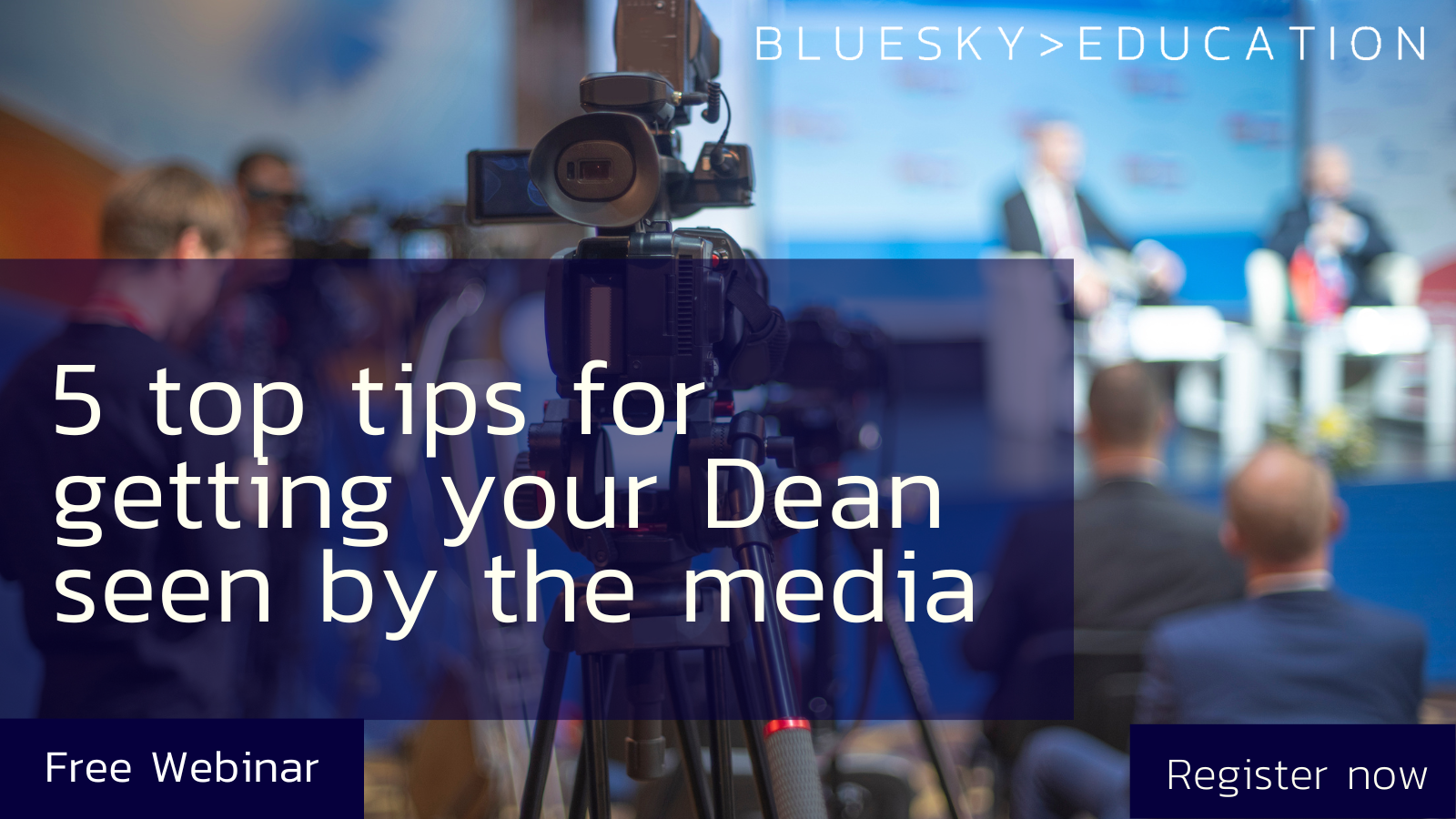Whether at a business school, university, start-up or multinational conglomerate, the men and women that sit in the C-suite are more than just leaders.
Whether Deans, CEOs and other Senior Leadership staff, their job description requires more than just running their organisation. They are an extension of the brand, that shapes people’s perceptions of their institution.
Just as the decisions they make matter, so too do the things that they say. And, in particular, the things that they say publicly.
From setting the tone, to communicating strategic plans for their organisation and reflecting on major events that impact the market, these individuals have a responsibility to engage with all stakeholders within their ecosystem in an effective and timely manner.
That’s why stakeholder communication plans are essential. As they saying goes: Fail to prepare, prepare to fail. Communications is not exempt from this rule of thumb.
What can the Dean of a business school do to better engage with stakeholders? And, for that matter, how can media relations play a part?
Stakeholder engagement is an ongoing process that requires clarity, efficiency and continuity. So does media relations. Effective interaction with the media is key to external stakeholder engagement.
Here are a few things to think about when planning for your Dean or President’s stakeholder communications plan.
Make time for the media
A practical note to start on: if you want to engage the media, and do so successfully, the head of the institution need to make time for it.
In a recent webinar, I joined my BlueSky colleague, Kerry Ruffle, to discuss b-school media engagement via the Dean. We offered a number of tips, pointers and action points that our expert communications team has identified in successfully securing coverage for the senior staff of many of the world’s leading business schools and universities. As we noted during our session, one of the biggest barriers to success centres on time – or a lack thereof.
The media – and, in particular, top tier media that Deans typically admire such as the FT, Bloomberg, Wall Street Journal and the BBC – work quickly. Very quickly. You cannot keep them waiting, as they simply won’t hang around for you.
We are the first to recognise that Deans are extremely busy, with a wide variety of daily commitments that leave little time to spare. And so busy that it would be both understandable and expected if they were to be highly selective about what media titles they make time for.
But so are journalists, who are probably more concerned about their own time constraints and deadlines than those of others – even the Dean. Harsh, but true.
So what can we, as communications professionals working with these busy individuals do to help?
In situations like this, we’re ideally-placed to coordinate these transactions. We are quite literally the ‘inter-media-ry’, sitting between the Dean’s office and the world’s newspapers, broadcasters and digital publishers. So we’re in direct contact with both parties. If we act efficiently, we can set the pace and make things happen seamlessly.
The first step before you engage with the press is to establish the availability of your Dean. We know this is a moving target - windows of time will become unavailable, spaces filled, and slots booked up. But having a clear sense of his or her availability will give you an edge. Beyond that, you need to be quick off the mark. Don’t sit on things. React quickly. As we’ve said, the Dean’s time is a scarce resource, so don’t waste it unnecessarily.
Be inclusive in your approach to media
Another barrier to success with the media – as noted in our webinar – is an unwillingness to engage with any publications beyond a select few.
This can be a damaging oversight. Why? Because there’s an entire global audience beyond the handful of tier one media. In planning for media engagement, Deans need to be aware of the value of trade and sector-specific press to their instutions.
These outlets offer a more targeted audience – one that is likely to be highly engaged in the industry and subject matter that your Dean is insightfully commenting on.
Looking specifically at business education press, there are countless options beyond the FT and WSJ that offer your Dean an excellent platform to reach an engaged audience. And because journalists at the FT and elsewhere are inundated with pitches, they rarely include more than a single quote or brief mention in their articles, versus the chance for an in-depth interview or school feature.
Being inclusive in your approach to media relations is vital. As we emphasised during the webinar: Broaden your horizons.
Know how you can contribute to the conversation
We identified a number of barriers to success that touched on a common theme: what Deans say to the media.
Whether in interviews, via written commentary or press releases, what the Dean or President says will essentially determine whether they feature or not. When planning media relations strategy around a Dean, you need to give thought to what they might say.
To be clear, this does not mean ‘make sure they’re scripted’. There are few things more off-putting for a journalist than a heavily scripted Dean who only seems offer marketing soundbites or overly pre-rehearsed talking points.
We need to ensure that the message has continuity. When you’re undertaking a campaign, the goal is to line up multiple opportunities. Ensuring that your Dean commentates with a sense of continuity matters. Preparation is key to this.
And bear in mind what they should not say, or the questions they should leave alone. At a fundamental level, ensuring that your Dean doesn’t say the wrong thing can be avoided by clear planning and thoughtful strategic discussion.
Everything in moderation. Apply this mantra to preparation around what your Dean says to media.
Planning stakeholder communications for your Dean or CEO can be challenging. After all, there are a lot of stakeholders to account for. When looking specifically at external stakeholder engagement, however, there’s a simple truth to drive your shared efforts: media relations is crucial.
How you engage with the media can shape your organisation’s reputation. If done well, positioning the Dean at the heart of your media engagement is an effective way for your school to communicate with a wider world on both an institutional basis, but with the added value of a personal voice. Putting a human face on an otherwise inanimate organisation.
But it’s all about how you engage the media via your Dean. This will determine your success. So, next time you’re planning on reaching out to the media via your Dean and other senior leaders, think about these clear steps. Better yet, reach out to BlueSky Education.
Jonny is an Account Manager at BlueSky Education. Jonny offers impactful results using an evolving network of essential media contacts, from national newspapers like Forbes, The Guardian, the Financial Times and The Telegraph, to specific trade editors such as PIE News, QS Top Universities, We Are The City and University World News. He is committed to helping more ambitious institutions reach international media goals.


.png?width=160&name=Jonny%20(2).png)


